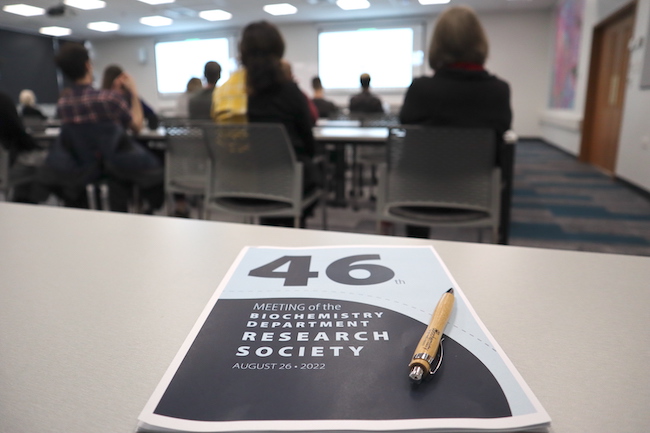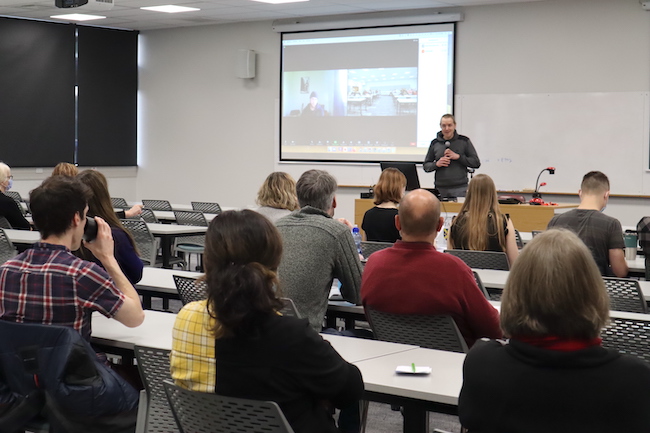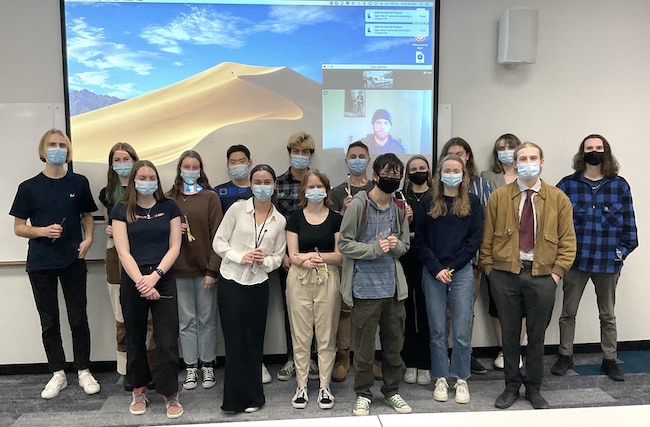
Last week the Department celebrated the hard work of our fourth year students at the 46th Meeting of the Biochemistry Department Research Society.
At this meeting, every fourth year student - including those studying for Honours and Master's degrees - presents the research they have been working on in labs across the Department throughout the year. This is generally the first experience that these students have in a real academic research lab.
The rest of the department gets to share in the highs and lows of laboratory research as seen through the eyes of 'newbies' and show their support for the up-and-coming new generation of scientists.
Research topics were as diverse as ever, including:
• Forms of breast cancer that respond best to immunotherapy
• Photosystem II assembly in cyanobacteria
• The role of long noncoding RNA in cancer
• Anthocyanin and tannin production in legume plants used as forage
• Antibiotic resistant bacteria
• Antioxidant systems in cell signalling
• The glowworm luciferase enzyme
… plus many more.
Although we were able to have the entire event in person this time, the technological lessons picked up during the last few years came in handy. One student was sick and restricted to bed at home, but this didn't stop him, and he gave a very good presentation over Zoom on a protein from myxoma virus that could help with autoimmune diseases.

After a full day of quality presentations, every fourth year student was presented with the traditional Biochemistry Department fourth year gift – a laboratory spatula.
We now wish the fourth years the best of luck as they move into exam mode and continue their studies. The Honours students have a month or two to complete their research projects and write a dissertation summarising their work, while Master's students have another year to delve further into their research before writing up.
